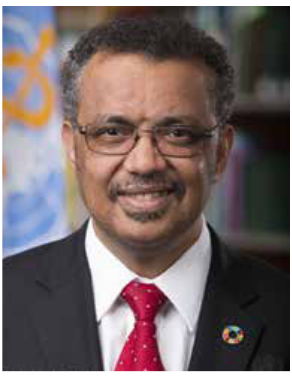
Foreword
The climate crisis is a health crisis. Extreme weather events, record-
breaking temperatures, storms and floods are causing disruption to
health systems, water and sanitation infrastructure and supply chains,
fuelling outbreaks of infectious diseases and contributing to higher
rates of noncommunicable diseases.
Nature is our most important health resource: 40% of pharmaceutical
products today draw from nature; one-third of our food supply is reliant
on pollinators; most of our water is naturally filtered; and biodiverse
environments act as a buffer from zoonotic diseases. The climate crisis
puts all of these at risk.
Many of the tools to meet these challenges are already at hand, including
sources of clean, efficient, cheap, renewable energy. Now is the time to
utilize them on a grand scale, to make them the norm rather than the exception. We must reshape our
cities to prioritise public transportation and human-powered vehicles, not just to reduce emissions but
for the health benefits of daily exercise. Green spaces in cities can improve air quality, provide space for
physical activity, enhance mental health, and help to cool urban areas.
The health and associated economic benefits of climate resilience and mitigation far outweigh the
investment needed to put them in place. Tackling climate change requires a radical shift in how we
prioritize energy spending. Consider: last year was a record-breaking year for fossil fuel subsidies - that is
public money that is effectively exacerbating the climate crisis.
This report, Health is the Argument for Climate Action, shows how we can protect and promote human
health through concrete climate action. This report is a collective call to action from the health community
on the frontlines of the climate crisis.
As Member States review their Nationally Determined Contributions to achieve their goals to meet the
Paris Agreement, we must not think of the commitments as an expenditure. These are investments in
a healthier future. Investing in climate resilience and mitigation, implementing nature-based solutions,
and transitioning away from fossil fuels is an act of collective self-preservation.
Dr Tedros Adhanom Ghebreyesus
Director-General
World Health Organization

- Log in to post comments

Comments1
last year was a record-breaking year for fossil fuel subsidies
Consider: last year was a record-breaking year for fossil fuel subsidies - that is public money that is effectively exacerbating the climate crisis.